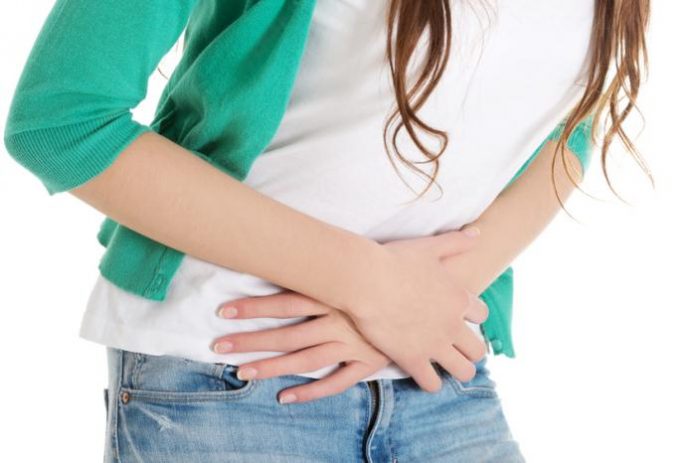Last Updated on April 9, 2024 by Ali Hamza
It is no secret that eating a healthy and balanced diet is important for maintaining good health. However, many people don’t realize that this includes the digestive system. A healthy diet can help minimize stool mucus and properly maintain your digestive system. This blog post will discuss everything you need to know about Mucus in stools and how they can be controlled with a healthy diet.
Let’s get started.
What is Mucus in Stool?
Mucus is a clear, jelly-like substance that is produced by the intestines. It lubricates and protects the lining of the intestines and helps to keep the stool moist. Mucus in stool can be caused by several things, including infection, inflammation, or allergies.
Mucus in stool can also signify a more serious underlying health condition, such as Crohn’s disease or ulcerative colitis. If you notice mucus in your stool, it’s essential to talk to your healthcare provider so they can determine the cause and provide appropriate treatment. You can check AskApollo for more in-depth information about this condition.
What are the Causes of Mucus in Stool?
There are a few different things that can cause mucus in stool. One common cause is an infection in the intestines, such as food poisoning or a stomach virus. Another possibility is a more serious condition like Crohn’s disease or ulcerative colitis. If you have mucus in your stool on a regular basis, it’s important to talk to your doctor so they can rule out any underlying medical conditions.
Diet plays a role in the amount of mucus present in the stool. A diet high in processed foods, sugar, and saturated fat can contribute to inflammation throughout the body, including in the digestive tract. This inflammation can lead to an increase in mucus production. On the other hand, eating plenty of fresh fruits and vegetables, lean protein, and healthy fats can help minimize inflammation and mucus production.
How is Mucus in Stool Diagnosed?
Mucus in stool is typically diagnosed through a physical exam. Your healthcare provider will ask you about your symptoms and medical history. They may also order a stool test to look for infections or other problems. If you have mucus in your stool, it’s important to see your healthcare provider so they can rule out any underlying conditions. Eating a healthy and balanced diet is one of the best ways to minimize stool mucus. The most common ways to get a diagnosis is:
Blood test
A blood test can help your healthcare provider check for infection or inflammation in your digestive system.
Endoscopy
An endoscopy is a procedure that allows your healthcare provider to look inside your digestive system using a small camera.
CT scan
A CT scan is a type of imaging test that uses X-rays and computer technology to create detailed images of your digestive system.
Colonoscopy
A colonoscopy is a medical procedure used to examine the large intestine (colon) for abnormalities visually. The colonoscope is a long, thin tube with a camera on the end that allows the doctor to see inside the colon. A colonoscopy can be used to diagnose and treat conditions such as hemorrhoids, inflammatory bowel disease (IBD), and colorectal cancer.
How can a balanced diet minimize mucus in stools?
Imbalances often cause mucus in stools in the diet. Eating a healthy and balanced diet can help to minimize mucus in stools. Healthcare professionals recommend consuming plenty of fruits, vegetables, and fiber-rich foods. Drinking plenty of fluids, especially water, is also important. Hospital patients are advised to follow a balanced diet to reduce their risk of developing mucus in stools. Along with this, regular exercise is also necessary to maintain a healthy weight and overall health.
Ways to Treat Mucus in Stool
Here are the major ways in which treatment can be done for mucus in stool:
Diet
The first step is to improve your diet by including more fiber-rich foods and probiotics. Fiber helps to bulk up stools and makes them easier to pass, while probiotics can help restore the balance of good bacteria in your gut.
Hydration
It’s important to stay hydrated when you have mucus in your stool, as this will help thin out the mucus and make it easier to pass. Aim to drink eight glasses of water or other fluids each day.
Exercise
Gentle exercise can also help stimulate bowel movements and relieve constipation. Try taking a short walk or doing some gentle stretching each day.
Medication
In some cases, your doctor may recommend medication to help relieve constipation or diarrhea. For example, they may prescribe laxatives to help with constipation or anti-diarrheal medication to slow down bowel movements.
Treatment will vary depending on the cause of the mucus, but following these tips can help minimize your symptoms and make you feel more comfortable.
The Bottom Line
Cutting back on unhealthy foods and increasing your intake of nutrient-rich fruits, vegetables, and whole grains can help reduce mucus in stools. If you’re still experiencing excessive mucus after making dietary changes, talk to your doctor about other potential treatments.
Apart from that if you want to know about How to Decorate Your living Room then please visit our Health category


























